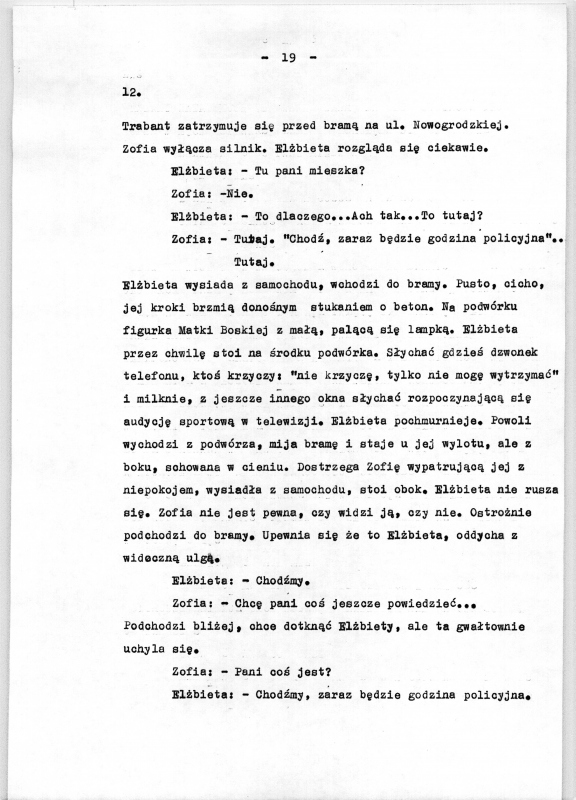12 Noakowski Street
The building at 12 Noakowski Street was constructed in 1912 and features a modern architectural style. During World War II its residents built a chapel with statue of the Virgin Mary in the interior courtyard, where it still stands.
Decalogue Eight
The inner courtyard of this building and its Virgin Mary figurine is a silent witness to history, one of the few locations in The Decalogue that is so intricately tied to a distant, bygone time. It also appears in the series’ only flashback scene. On a dark night in 1943, in Warsaw under German occupation, a Jewish girl is led to one of the apartments in this building, seeking refuge. Kieślowski based this plot line on an autobiographical story related to him by Hanna Krall, a famous writer and author of numerous works of non-fiction about the Holocaust. The two heroines of Decalogue Eight (Maria Kościałkowska and Teresa Marczewska) visit the building where their paths crossed on that wartime night. The structure bears the scars of Warsaw’s post-war history, when old homes were unmaintained for years, gradually falling into disrepair, and the spacious pre-war apartments were subdivided into smaller units. The co-author of the screenplay, Krzysztof Piesiewicz, a lawyer, contributed to this story the theme of “unimputable guilt”: the feeling experienced by people who, like his mother, witness a crime but are helpless to intervene. During the Second World War, Piesiewicz’s mother saw an SS officer march a young Jewish woman and her child out of their home. He tore the baby from her arms and heaved it against a wall, dashing its little head on the bricks, and then tossed the body into the truck onto which the poor mom had been herded along with the other detainees. Piesiewicz’s mother told him the story many times throughout her life, repeatedly revisiting the memory of the events she had witnessed from the window.
